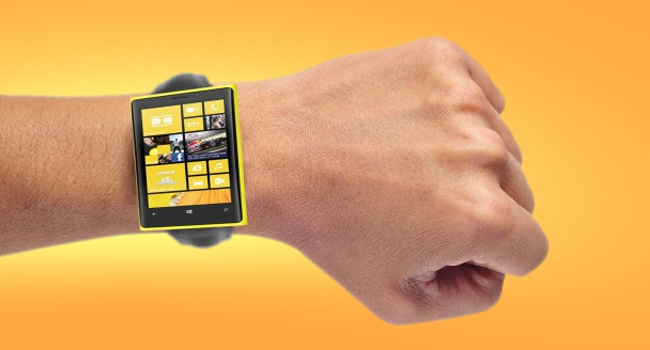
Microsoft is the latest tech giant said to be looking into the possibility of building a smartwatch, with a Wall Street Journal report (subscription required) late Sunday suggesting the company asked suppliers earlier this year to ship components from Asia for such a device, among them 1.5-inch touchscreens.
The Journal obtained its information from several unnamed supplier executives, one of whom reportedly met with Microsoft’s research and development team at its base in Redmond, WA, though it’s not known if the company is moving ahead with concrete plans to build a smartwatch or is simply taking an early-stage look at what such a project would entail.
If it does decide to jump in, it’ll want to act quicker than it did with its Surface device, which hit the market just a few months ago, three years after the iPad launched the tablet market in 2010. However, the high-tech wristwatch market is already showing signs of life, with a number of companies, including Pebble, already offering consumers smartwatches.
A Samsung executive confirmed last month the Korean company has been working on a futuristic watch “for so long”, though he declined to say when it might be available.
Apple is also thought to be developing such a device – the so-called iWatch – with a report in February this year claiming “a team of about 100 product designers [is] working on a wristwatch-like device that may perform some of the computing tasks now handled by the iPhone and iPad.”
With the wearable tech market apparently on the verge of significant growth, and PC sales reportedly falling through the floor, Microsoft may well see a smartwatch as part of its long-term hardware strategy, though it’d better be a darn site more appealing than its first stab at futuristic wrist gear. The SPOT (Smart Personal Object Technology) watch may have been “revolutionary, smart and sexy” when it launched in 2004, but poor sales saw it killed off four years later.
[Image: Saulius L / Shutterstock]


